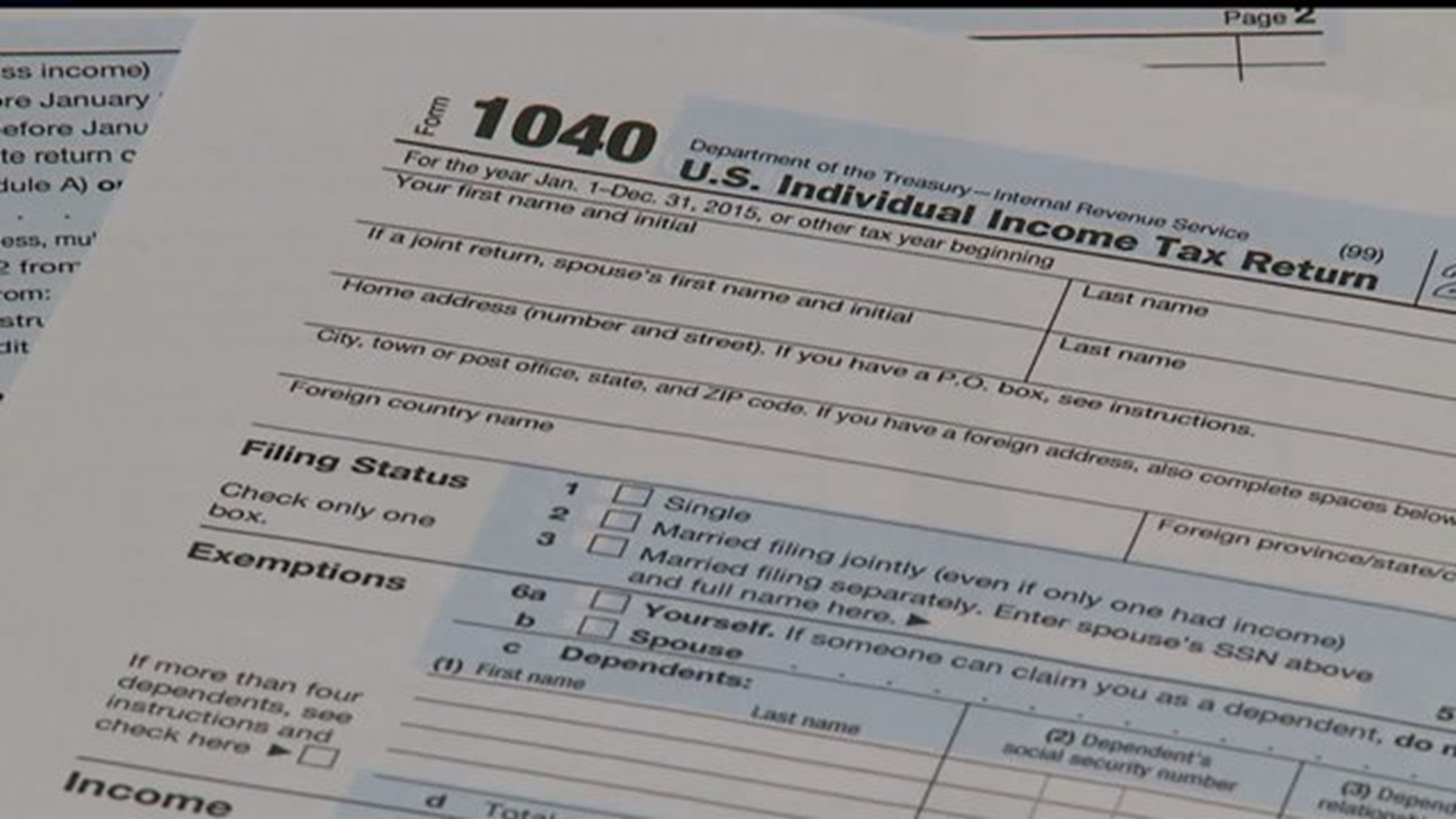LANCASTER, Pa. -- The IRS is warning taxpayers of the dirty dozen scams of the 2016 filing season.
Joe Wirbick, president of a financial services company, said one of the most common tax scams is phone calls, and he himself was a recipient of one.
"I just received one just a few weeks ago," Wirbick said, "And even though I knew it was a scam and even though I knew that it wasn't real. They did such a good job that there was a few seconds in there where I was even worried that something was wrong. Then I came to my senses."
Wirbick stressed the IRS will only try to contact you via a letter in the mail, and if you have any questions call them at (800) 829-1040.
"The IRS does not initiate contact through emails, through social media, through text messages. They're going to send an official letter. And the problem is these things look real. These scammers are really good at what they do," he said.
He said another scam the IRS also warns of is tax preparer scams.
Wirbick said, "First thing you want to make sure is that they're not asking for a percentage of your refund because what they'll do is they'll jack up the refund so that they'll get a higher return."
He said to make sure the tax preparer also signs the 1040 form after it is filled out.
Stacy Young, a CPA at Schreckengaust Associates said some of their clients have received phony calls from someone impersonating the IRS.
Young said, "One person in particular was a little concerned and thought that that really was a call from the IRS and got a little scared. But she called us, we calmed her down and we said, 'No absolutely not. They won't call you. They'll contact you via mail.' I had another client, he got the call and he said, 'Oh I'm on the third floor. Come and get me,' because he knew it was a scam."
Another scam Young's clients deal with is identity theft where someone files a tax return using your information.
She said, "The taxpayer generally has no knowledge this has happened until either we go to file a return for them, and we get an error message on the e-file that says a return has already been filed in your social security number."
Or the IRS could send a letter saying they need more information on the return you filed, but you haven't filed one. Which is exactly what happened to Carol Schreckengaust, the owner of Schreckengaust Associates.
She said she was the victim of identity theft twice in 2013. Someone got ahold of her personal information and opened a credit card. Then later in the year, someone filed a tax return with her information.
Schreckengaust said, "I got a letter in the mail from the IRS saying that they were processing my refund, and they were just checking a few things and that they would get back to me."
But she hadn't filed her return yet.
The problem is the burden of proof then falls on the victim, who has to send documents to the IRS to show they are who they say they are.
"You feel like you're really being discriminated against but you have to also realize that that's the only way that they can determine that you are who you say you are and that the money is yours or the tax return is yours," she said.
It can happen to anyone.
She said, "Well being in the business I knew the background of all the frauds and scams that were going on. I was really - I was shocked because you think it's never going to happen to you, and then it did."
Wirbick said make sure if you do receive a letter, make sure it's really from the IRS.
"If you get a letter that's questionable, you want to call the IRS directly. You don't want to assume that because it's a letter. You want to call the 800 number through the IRS to make sure that it's definitely from them, so that you don't get scammed that way," he said.
If you have any questions, go to IRS.gov.
The other tax scams are:
Phishing - if you get an email from someone claiming to be the IRS, you can report them to phishing@irs.gov
Offshore accounts
Fake charities
Falsely padding deductions
Excessive business credit claims
Falsifying income to claim tax credits
Abusive tax shelters
Frivolous tax arguments

